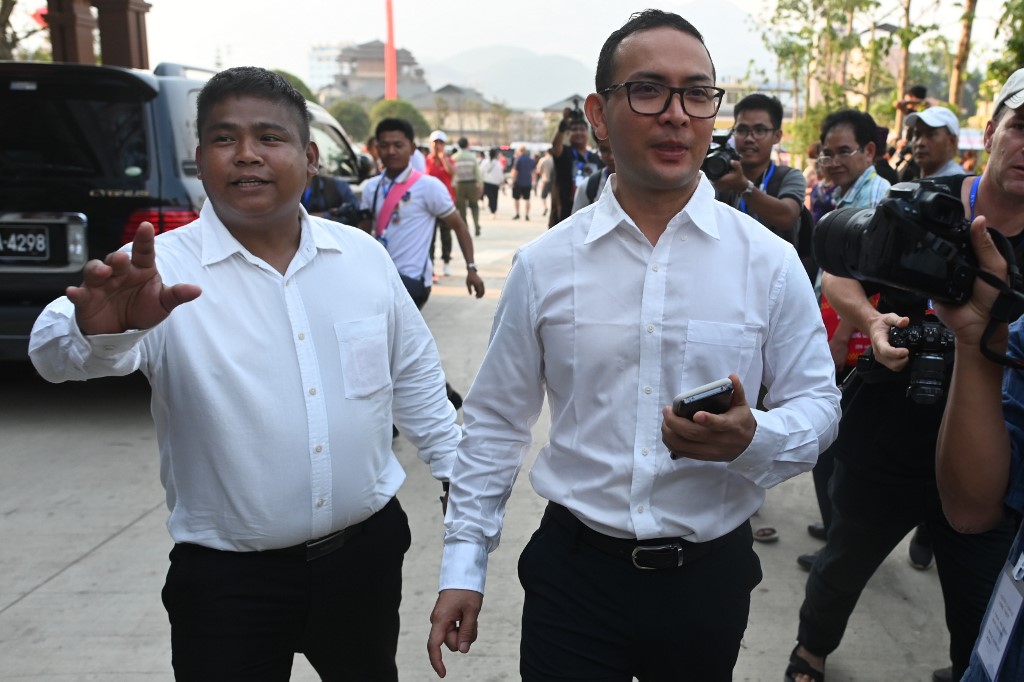
Eight people accused of helping fund ethnic Rakhine rebels, including several deported from Singapore, were formally charged under counter-terrorism laws in a Yangon court Friday.
Myanmar's military has been locked in battle for months with the Arakan Army (AA) in crisis-hit northern Rakhine state.
It was also the epicentre of the armed forces' brutal crackdown in 2017 against Rohingya Muslims.
The AA claims to be fighting for more autonomy for ethnic Rakhine Buddhists.
The suspects on trial include Aung Myat Kyaw, believed to be the brother of AA chief Tun Myat Naing and one of six deported from Singapore in July.
They are accused under counter-terrorism laws of providing financial support to the banned group.
"Eight people have been charged," defence lawyer Kyaw Myo Htun confirmed.
Friday's court hearing was the first time he and family members had been given access to the suspects.
If found guilty, they could face life in prison.
One other suspect is still under investigation and two more are currently on the run, the lawyer added.
Aung Myat Kyaw told reporters after the Yangon court hearing they had "no regrets," claiming they had only been assisting people displaced by the fighting.
"The government has neglected the IDPs in the Rakhine conflict and that is why we did what we could to help," he said.
The AA could not be reached for comment on the case.
Scores of people have died—including civilians—and tens of thousands have been forced from their homes by the fighting.
Yet the rebellion, which has simmered since the group's formation in 2009, has widespread support from a population that has long felt marginalised in one of the country's poorest states.
The military redeployed thousands of extra troops to the area after a series of brazen attacks by the AA on police posts in January.
The conflict area is in a complete lockdown both on and offline, making independent reporting impossible.

